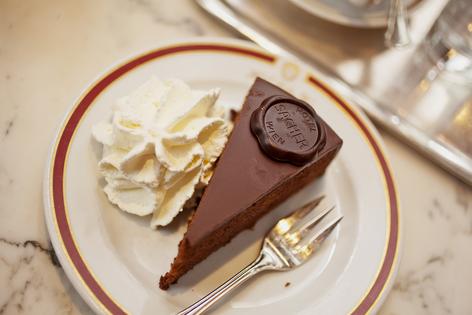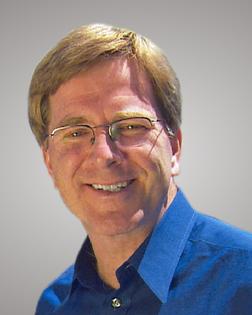Rick Steves’ Europe: Café chitchat, chocolate cake, and the Vienna opera
As we've had to postpone our travels because of the pandemic, I believe a weekly dose of travel dreaming can be good medicine. Here's one of my favorite European memories from Vienna — a reminder of the fun that awaits us at the other end of this crisis.
Munching Europe’s most famous chocolate cake — the Sacher torte — in Café Sacher, across from Europe’s finest opera house, I feel underdressed in my travel wear. Thankfully, a coffee party of older ladies, who fit right in with the smoked mirrors and chandeliers, make me feel welcome at their table. They’re buzzing with excitement about the opera they are about to see — talking of long-dead Viennese composers as if they were still neighbors and even bursting into occasional bits of arias.
Loni, the elegant whitehaired ringleader, answers my questions about Austria. “A true Viennese is not Austrian, but a cocktail,” she says, wiping the brown icing from her smile. “We are a mix of the old Habsburg Empire. My grandparents are Hungarian.” Gesturing to each of her friends, she adds, “And Gosha’s are Polish, Gabi’s are Romanian, and I don’t even know what hers are.”
“It’s a melting pot,” I say.
They respond, “Yes, like America.”
For 600 years, Vienna was the head of the once-grand Habsburg Empire. In 1900, Vienna’s nearly two million inhabitants made it the world’s sixthlargest city (after London, New York, Paris, Berlin, and Chicago). Then Austria started and lost World War I — and its far-flung holdings. Today’s Vienna is a “head without a body,” an elegant capital ruling tiny Austria. The average Viennese mother has one child and the population has dropped to 1.8 million.
I ask Loni about Austria’s low birthrate.
“Dogs are the preferred child,” she says, inspiring pearl-rattling peals of laughter from her friends.
Sharing coffee and cake with Viennese aristocracy who live as if Vienna were an eastern Paris, and as if calories didn’t count, I’m seeing the soul of Vienna. Vienna may have lost its political clout, but culturally and historically, this city of Freud, Brahms, a gaggle of Strausses, Empress Maria Theresa’s many children, and a dynasty of Holy Roman Emperors remains right up there with Paris, London, and Rome.
As far back as the 12th century, Vienna was a mecca for musicians, both secular and sacred. The Habsburg emperors of the 17th and 18th centuries were not only generous supporters of music but also fine musicians themselves (Maria Theresa played a mean double bass). Composers such as Haydn, Mozart, Beethoven, Schubert, Brahms, and Mahler gravitated to this music-friendly environment. They taught each other, jammed together, and spent a lot of time in Habsburg palaces. Beethoven was a famous figure, walking — lost in musical thought — through Vienna’s wooded parks.
...continued
(c)2020 RICK STEVES DISTRIBUTED BY TRIBUNE MEDIA SERVICES, INC.










